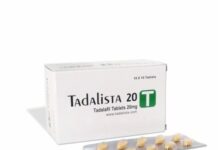Despite the enormous development of the Indian healthcare industry, the cost of treatment has grown significantly over the past decade. Between 2010 and 2016, the per capita expenditure on healthcare has increased by only Rs. 491, and contributed a total of only 1.02% of the nation’s GDP. Expenses for basic healthcare services however have increased manifold.
Today, expenses towards critical operations like angioplasty, bypass surgery, etc. can bill upwards of Rs. 10 Lakh. Adding other bills like medicines, doctor’s fees, post-hospitalisation care, etc. can increase the amount even higher and beyond the financial capability of most families.
Because of such a substantial financial burden, many people often avail a credit instead to meet the medical expenses. Various financial institutions offer different types of loans to help borrowers meet such vital financial obligations. A substantial amount of funds is vital to meet all such expenses without fail.
A property loan for a medical emergency can be the most beneficial financial product in such cases. These are secured credits disbursed against an asset mortgaged to financial institutions who lend the funds. Loan against property provides an ample amount of finance for both salaried and self-employed individuals, helping them overcome substantial monetary challenges with ease.
Why Is It A Better Option?
There are several reasons why a loan against property in India might prove the most beneficial to tackle medical emergencies.
- Larger Loan Amount – A substantial loan amount makes loan against property ideal to tackle expensive medical treatments. The total value is calculated based on the market price of the mortgaged asset. Leading lenders offer up to Rs. 1 Crore for salaried, and up to Rs. 3.5 Crore for self-employed individuals as a loan against property.
A borrower can avail the highest quality medical treatment without worrying about their finances with such ample loan amounts. One can even finance healthcare at an overseas location with the help of a loan against property for a medical emergency.
- Affordable Interest Rate – Most financial institutions charge affordable interest rates on loans against property because of the lower risk involved for them. A lender disburses the amount against a mortgaged property, which acts as a security in case the borrower fails to repay the credit.
Financial institutions like Bajaj Finserv offer 10.10% to 11.50% interest rate for a salaried individual and 10.50% to 14.50% to self-employed individuals on their Loans Against Property. They also provide pre-approved offers that make availing credit time saving and hassle-free. These offers are available on several financial products, including secured advances like home loans, unsecured credits like personal loans, business loans, etc.
- Flexible Repayment Tenor – Flexible tenors ranging from 24 months to 240 months makes the loan repayment significantly more convenient. It allows a borrower to select a term according to their suitability, considerably reducing the chances of late repayments or defaulting. Moreover, one can easily part-prepay or foreclose their loan with minimum charges.
- Simple Eligibility Criteria – An easy-to-meet loan against property eligibility criteria and minimum documentation makes this type of credit significantly more accessible for all types of borrowers.
The simple eligibility criteria and documentation to ensure that the application and verification process is completed as quickly as possible. It can prove beneficial at times of a medical emergency.
Financial institutions look for only the basic requirements like citizenship, source of income, and age to measure the creditworthiness of a borrower. For example, a self-employed individual aged between 25 to 70 years and with a steady source of income, or a salaried applicant aged between 33 to 58 years and working with an MNC, public or private sector are eligible for the credit.
The different financial institutions require different documents according to their norms. But basically loan against property documents required includes salary slips and bank account statements for the last 3 months for a salaried individual. They would also have to submit PAN or Aadhaar card details, address proof, Income Tax returns, and a copy of the documents of the property to be mortgaged. Self-employed applicants will have to submit similar paperwork, except for bank account statement for the last 6 months instead of salary slips.
A large loan amount, instant disbursal, affordable interest rate, and flexible tenor make a loan against property the ideal financial tool to tackle medical emergencies. Avoid a few basic things while availing a loan against property such as misrepresentation of property value or low CIBIL score to make the most of your loan against property.






